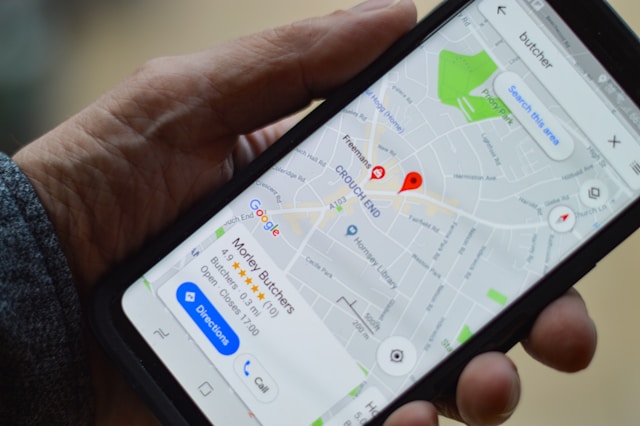Do you want to boost your performance in the search engines or attract local foot traffic? Then, you’ll need to avoid the generic keywords that don’t help you find the right customers. Instead, we’ll share how you can find geo keywords to improve your effectiveness in location-based marketing.
Furthermore, we’ll reveal the best local keyword trackers to help you monitor performance. Hence, you can discover the location-specific keywords that your business is ranking. You’ll need these tools on your journey to beat the competitors in your local area to success.
Keep reading to learn more about how to find the right geo targeting keywords!

Table of Contents
How To Find Geo Specific Keywords
Do you want to know how to find geo-specific keywords for your proximity marketing or search engine optimization (SEO) campaigns? The right keywords are important for improving your search engine rankings.
In this section, we’ll reveal the top three tools so that you can improve the performance of your geolocation accuracy.
1. Utilize Google Keyword Planner
Google Keyword Planner is a valuable tool for finding geo-specific keywords. Start by entering a broad keyword related to your business and setting the location filter to your target area. The tool will provide a list of keywords along with their search volume and competition level.
You’ll then need to analyze this data to help identify the most relevant and effective keywords for your local audience. Make sure you consider the competition level compared to the keyword volume. Ideally, you’ll strike the right balance so the competition isn’t too high, and you can generate meaningful traffic from those keywords.
2. Analyze Local Competitors
Researching your local competitors can provide insights into the keywords they are targeting. Use tools like Ahrefs or SEMrush to analyze their websites and discover which keywords they rank for in your target region.
This helps you understand what is working in your local market and identify potential keyword opportunities. Additionally, incorporating these keywords into your strategy can enhance local search visibility and attract more geo-specific traffic.

3. Use Location-Based Modifiers
Incorporate location-based modifiers to find geo-targeted keywords. For example, add the name of your city, neighborhood, or region to your primary keywords. This helps attract local traffic from a particular geographic location.
For example, instead of “best restaurants,” use “best restaurants in New York City.” This approach ensures your content is highly relevant to users searching for services or information in a particular area.
Geotargeting is much easier when focusing on smaller areas since you’ll have less competition. Keep this in mind when selecting what area names to incorporate into your geographic keywords.

How To Find the Best Local Keyword Tracker
Local keyword trackers allow you to monitor web page rankings for target keywords. You’ll need access to the best local keyword trackers to monitor the performance of your geo-targeting keywords. Here are the top points to consider to find the right tool:
- Test free trials and demos: Many keyword tracking tools offer free trials or demos. Utilize these to test the tools firsthand and evaluate their local keyword tracking features. Also, pay attention to the ease of use, accuracy of data, and the range of local keywords tracked. This practical experience helps you determine whether the tool fits your requirements before purchasing.
- Analyze reporting and analytics features: Look for a keyword tracker with robust reporting and analytics features. Detailed reports on keyword performance, trends, and local search volume are essential for effective optimization. Also, the ability to generate custom reports and analyze data over time helps you make informed decisions.
- Assess integration capabilities: Check if the keyword tracker integrates well with other SEO tools and platforms you use. This includes Google Analytics, Google Search Console, or your website’s content management system (CMS). Seamless integration enhances workflow efficiency and ensures comprehensive data analysis.

Frequently Asked Questions
Why are geo-specific keywords important for local SEO?
Geo-specific keywords are crucial for local SEO as they help your business appear in search results for users in a specific area. They improve your chances of being found by local customers searching for products or services you offer.
Therefore, optimizing your content with these keywords enhances your local visibility, which drives targeted traffic and can lead to higher conversion rates from local searches.
How can I use geo-specific keywords in my content?
Incorporate geo-specific keywords naturally throughout your content. This includes titles, headings, meta descriptions, and within the text. Use them in location pages, blog posts about local events or topics, and in your Google My Business profile.
Furthermore, avoid keyword stuffing and instead focus on creating valuable content that addresses the needs and interests of your local audience.
How often should I update my geo-specific keywords?
Regularly update your geo-specific keywords to stay relevant and competitive. Therefore, revisit your keyword strategy every few months or whenever there are significant changes in your industry or local market.
Also, use keyword tracking tools to monitor performance and identify new trends or opportunities. This updates your keywords and ensures your content continues to attract and engage local users effectively.
Can social media help with geo-specific keyword research?
Yes, social media can be a valuable tool for geo-specific keyword research. Make sure to monitor local hashtags and trends on platforms like Instagram, Twitter, and Facebook. Also, engage with local communities and observe the language and keywords they use.
This can provide insights into popular local search terms and help tailor your content and SEO strategy to target your local audience better.
Should I use geo-specific keywords in my blog posts?
Yes, using geo-specific keywords in your blog posts can attract local readers and improve your local SEO. You can write about topics relevant to your area, such as local events, news, or guides.
Additionally, incorporate geo-specific keywords naturally within your content and headings. This not only helps with search engine rankings but also engages your local audience.

Geo Keywords: Are They Hard to Target?
No, targeting geo-modified keywords is not hard because of the lower competition levels you can expect. While the biggest competitors go after broad keywords, you can focus on specific locations. You’ll find that there are fewer competitors for geo targeted keywords that represent smaller physical locations.
Furthermore, use the right software when executing marketing campaigns with geo keywords. These tools will help you manage a large number of keywords, which improves overall performance.
Do you want other ways to target users in your local area? Then, take advantage of the geolocation data from geoPlugin. We provide location-based data from IP addresses with high accuracy levels. This will help you target the right users in a location.
So what are you waiting for? Give geoPlugin a try today to boost your marketing efforts!













